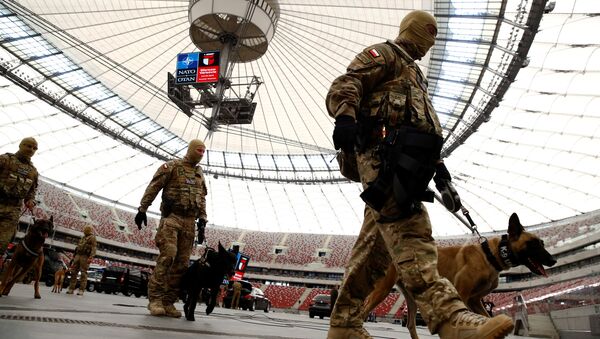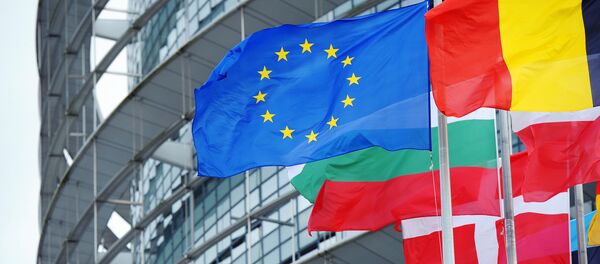Earlier this week, Brussels unveiled its Global Strategy, meant to update the EU’s foreign and security policy. In particular, the document calls to bolster defense cooperation in Europe.
The new strategy has prompted some to say that Brussels is seriously considering establishing a European army.
Brexit may be the driving factor in these plans. Britain has the strongest military in the EU so European leaders fear that after London leaves the EU’s military capabilities will decrease. At the same time, London has long opposed creating a European army parallel to NATO.
After the Brexit vote, an "obstacle that prevented better cooperation has been removed," Marcin Zaborowski, Executive Vice President of the Center for European Policy Analysis (CEPA), told Wirtualna Polska news site.
Nevertheless, if created a European army would be a significant addition to the military and defense burden of EU taxpayers.
Here is a list of the security organizations Europe is already paying for.
The UN Police (UNPOL)
The UN Police has been an inherent part of the UN-led peace operations. Currently there are nearly 15,000 UN Police operating in over 90 countries.
The UN Police acts at a mandate of the UN, thus by agreement of a certain UN member state.
The UN does not have its own police and military forces, and member states contribute their forces to the UN Police. It can operate in any UN member state. Police officers of any member state can be deployed to the UN Police.
Frontex
Currently, Frontex, a European border security agency, is undergoing major reforms.
Previously it relied on coast guards provided by the EU members but now it will have a permanent corps of border guards. It will be deployed to help countries which have difficulties securing their borders.
The corps will operate across the EU and will be able to act even without authorization of a certain country in the event of a serious crisis.
Interpol
The International Criminal Police Organization is an intergovernmental organization facilitating cooperation between national police forces. It involved the police forces of 190 countries.
Interpol coordinated national police forces, including in fighting cybercrimes, terrorism, and organized crime.
Interpol does not have own forces. Police officers of any country members can be sent to the organization.
Europol
The European Police Office is the law enforcement agency of the European Union.
It handles criminal intelligence and combats serious organized crime by coordinating actions of the relevant authorities of the member states.
Europol also does not have own forces. Personnel of national law enforcement agencies are seconded to work in the organization.
UN peacekeepers (Blue Helmets)
The UN peacekeeping forces comprise civil and military personnel seconded by UN country members. But Blue Berets usually refers to military forces.
Currently, nearly 120,000 personnel from 114 countries, including 18,000 civil personnel, are involved in 16 UN peacekeeping missions around the world.
The Blue Helmets are deployed at a mandate from the UN, thus by agreement of the certain country.
NATO
Originally established as a defense military alliance of the United States and Western Europe, NATO has been conducting military operations with and without UN authorization.
NATO does not have its own forces. Its capabilities depend on contribution of the member states.
European Union Force (EUFOR)
EUFOR is the closest to a European army. In fact, it is a staff coordinating forces seconded by its main country members, including France, Germany, Belgium, Spain, Luxembourg, and Poland.
The decision to deploy forces is made by the five main country members. The decision may be independent or at the request from the EU, UN, NATO, and OSCE.
EUFOR does not have its own forces. Its personnel can be deployed around the world.






